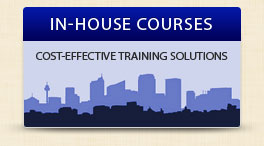 Introduction to APQP and PPAP
Introduction to APQP and PPAP
Overview
Companies that have implemented ISO/TS16949 may use Advanced Product Quality Planning (APQP) to ensure that their products and production processes meet the market requirements and customer expectations. The Production Part Approval Process (PPAP) provides client organisations with the evidence required to show that - "All customer engineering design record and specification requirements are properly understood by the supplier and that the process has the potential to consistently produce products meeting those requirements during an actual production run"
Course Objectives
This interactive and practical course will provide delegates with a basic knowledge of APQP and PPAP. It will show delegates how to compile the evidence required during the development process and explains how client organisations can use the information supplied to gain confidence in their suppliers.
Key Skills / Learning Objectives
Through the combination of interactive tutorials and workshops, our course will enable the delegates to:
- Interpret the requirements for APQP and PPAP in ISO/TS 16949 and the need for these in business.
- Initiate the APQP and PPAP processes within an organisation with an awareness of the scope and limitations of approval.
- Understand the levels of submission and evidence required.
Course Outline
- The business need for APQP and PPAP processes
- The requirement for APQP and PPAP in ISO/TS 16949
- Overview of APQP process
- Project Management and Timing Plans
- Defining project scope and requirements
- Product design and development
- Process design and development
- Product and process validation and control plans
- PPAP process and requirements
- Scope and limitations of approval
- Evaluation of evidence submitted
- Ford phased PPAP requirements
- Levels of Submission and Evidence required
- Parts submission warrant
- Supporting evidence
- Materials data and use of IMDS database
- Process capability
Additional Core Tools relating to the Automotive industry include: Failure Mode and Effects Analysis (FMEA); Measurement Systems Analysis (MSA); Statistical Process Control (SPC).
Who Should Attend?
- Engineers and engineering managers responsible for developing and managing supply chain relationships
- Design, manufacturing and quality engineers involved in the preparation, submission or evaluation of PPAP documentation
Booking and Course Fees
Fees include:
- Delegate workbook, including reference information
- Training provided by qualified and experienced tutors with extensive practical management auditing experience across a variety of manufacture and service industries
- Lunch and refreshments during the day
- Certificate verifying attendance and completion of course
More Information
ISO/TS 16949:2009 course dates and venuesRequest further information
In-House training
Associated courses
What our customers say













